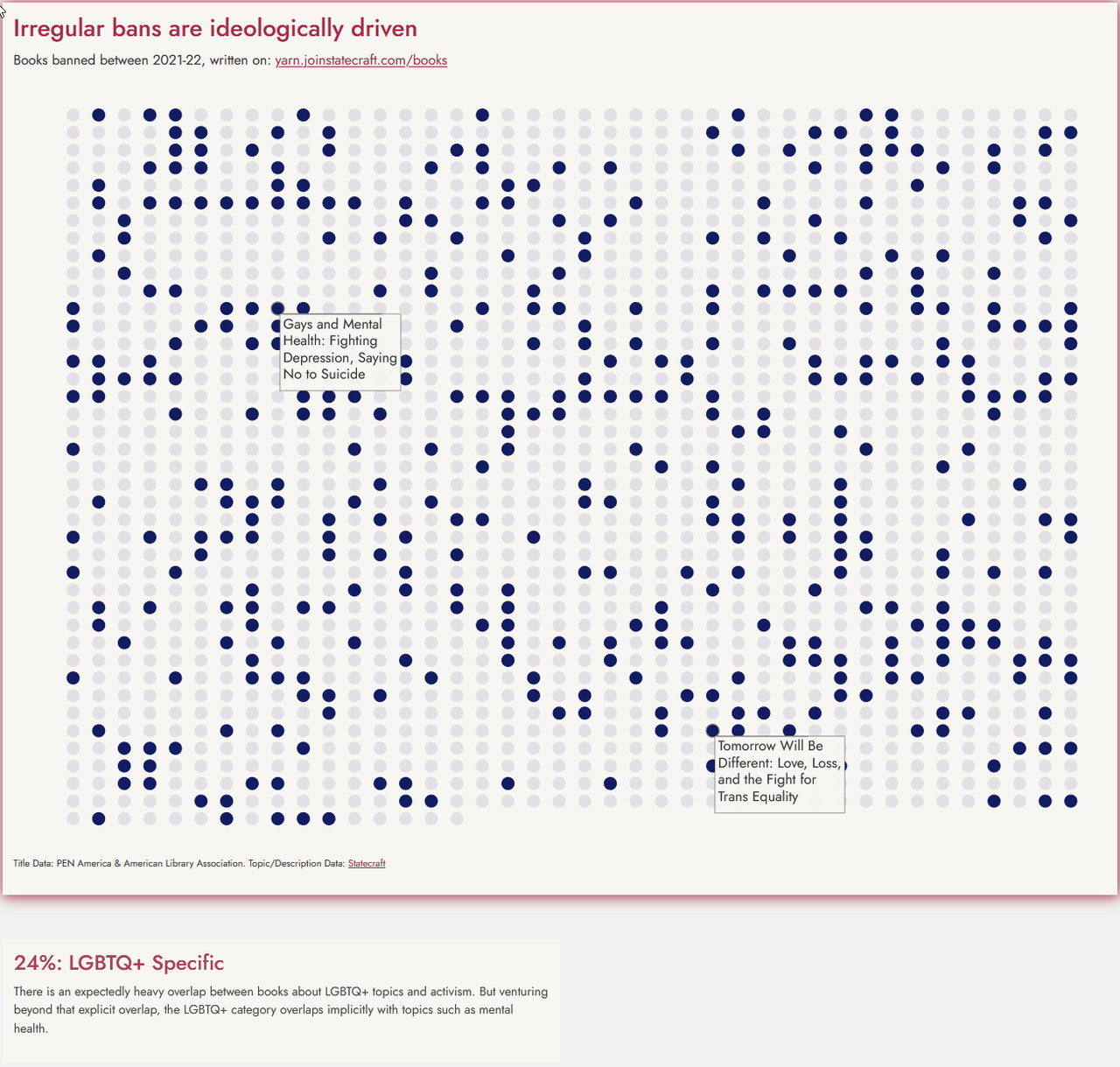🤗 How inclusive is generative AI on chatLGBT?
Late to the Party 🎉 is about insights into real-world AI without the hype.

Hello internet,
I’ve had a lovely week at work. So in celebration of some awesome machine learning, let’s look at some more machine learning together!
The Latest Fashion
- This is an amazing deep dive into embeddings!
- Pomsky is a way to finally write regular expressions without regex.
- Did you see Hugging Chat already?
Got this from a friend? Subscribe here!
My Current Obsession
I’ve had a pretty fantastic time working out how to make better machine learning models with Hydra. Wondering if I should make some content around it because it’s honestly delightful.
Unfortunately, my proposal to talk at EuroScipy got rejected this year. I was on the fence about joining anyways since Switzerland is terribly expensive. I have generally noticed that fewer people seem to be interested in me talking about machine learning fundamentals. This was also the case at PyData Global last year. So either I find a new topic to get invested in, or I stop attending Python conferences.
Honestly, lots to think about at the moment. Writing a new article (linked below) was a ton of fun. But maybe it really is time for me to find my way back to my core strengths.
I have also gotten emails that a lot of you were interested in the Latent Space community, but the software didn’t send its email, so I’m seriously considering moving off that software and possibly opening a Discord instead. If you have opinions about this, let me know!
Thing I Like
Summer is in full blast. Remember to wear shades. They’re not just in style. They also protect your eyes from UV radiation!
Hot off the Press
I wrote an article with 5 intermediate tipps to train better Pytorch models.
In Case You Missed It
My Notion Task list hack for ADHDers is blowing up right now.
Machine Learning Insights
Last week I asked, How would you define prompt engineering in the context of language models, and why is it important in achieving desired outputs?, and here’s the gist of it:
Prompt engineering refers to the process of crafting or designing the input prompt given to a language model to achieve desired outputs.
It involves carefully formulating the question or instruction provided to the model in order to influence the generated response.
Prompt engineering is important in achieving desired outputs because language models, such as ChatGPT, generate responses based on the input they receive. By appropriately shaping the prompt, we can guide the model to generate more accurate, relevant, or specific responses. For example, let’s consider the context of meteorological data. If we want to ask for a language model about the relationship between temperature and rainfall, we could use prompt engineering to get more meaningful responses. Instead of a generic question like “What is the relationship between temperature and rainfall?” we could provide a more specific prompt like “How does an increase in temperature affect the amount of rainfall in a given region over an entire year?”
By refining the prompt, we can guide the language model to focus on the specific aspect we are interested in.
This increases the chances of receiving an answer that addresses our query more effectively.
Prompt engineering is particularly important when working with language models because they generate responses based on patterns and information they have learned from training data. By providing clear, specific, and well-crafted prompts, we can improve the relevance and accuracy of the model’s output. However, it is worth noting that prompt engineering is an iterative process. It often requires experimentation and fine-tuning to find the most effective prompt for a desired output. Different prompts can yield different results, and it may be necessary to iterate and refine the prompt to achieve the desired response.
Data Stories
Last year, 1626 books were banned in the United States.
But what do these books cover?
Out of these books, a quarter cover the topic of LGBTQ+
View this interactive visualization to dive deeper into this scary development in our history.

Source: Banned Books
Question of the Week
- Can you explain the RTF prompting technique?
Post them on Mastodon and Tag me. I’d love to see what you come up with. Then I can include them in the next issue!
Tidbits from the Web
- The Rich have their own ethics: A video essay about effective altruism
- This dad joke competition is very good (and Australian so watch with care).
- This app finds Youtube videos of hard-to-pronounce things for you to search.
Add a comment: